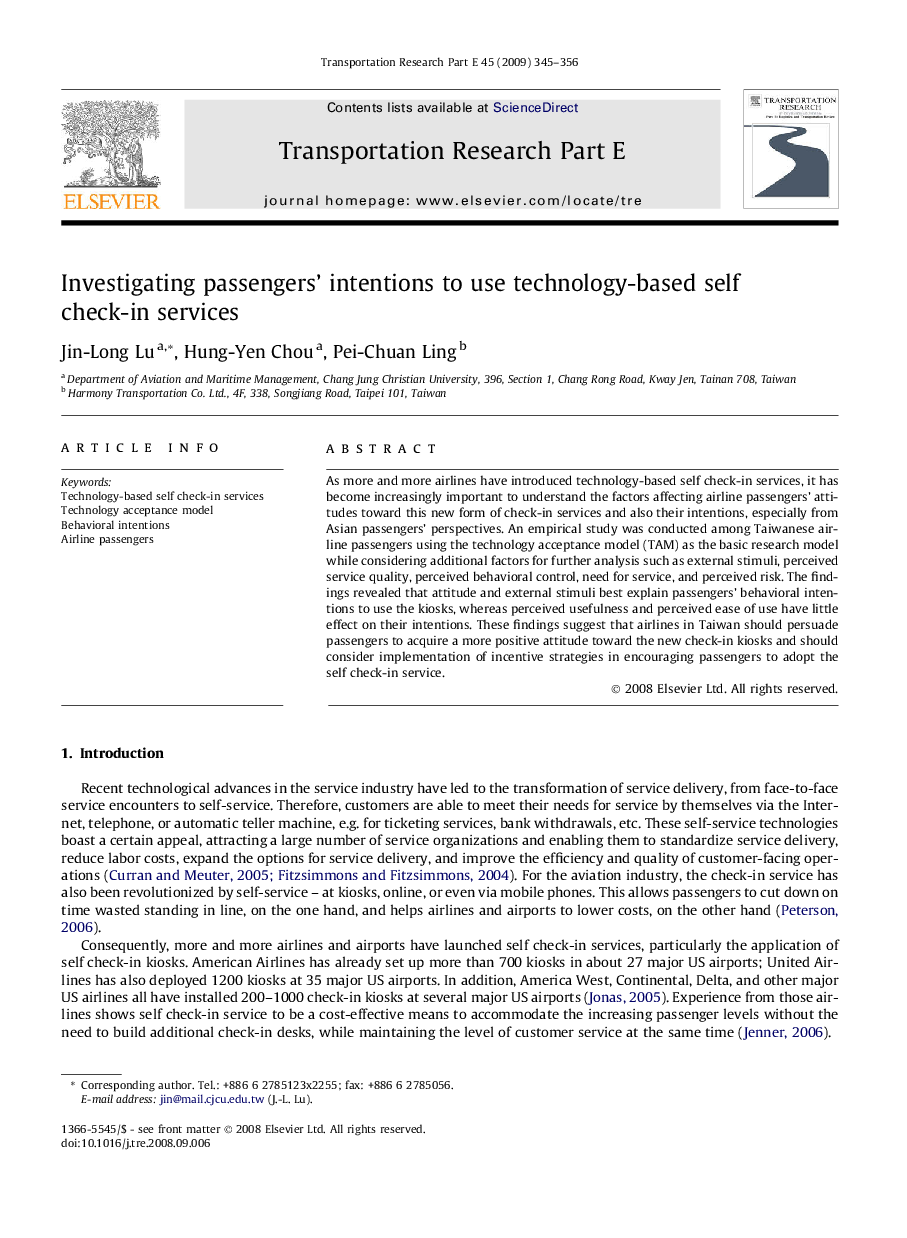| Article ID | Journal | Published Year | Pages | File Type |
|---|---|---|---|---|
| 1023776 | Transportation Research Part E: Logistics and Transportation Review | 2009 | 12 Pages |
As more and more airlines have introduced technology-based self check-in services, it has become increasingly important to understand the factors affecting airline passengers’ attitudes toward this new form of check-in services and also their intentions, especially from Asian passengers’ perspectives. An empirical study was conducted among Taiwanese airline passengers using the technology acceptance model (TAM) as the basic research model while considering additional factors for further analysis such as external stimuli, perceived service quality, perceived behavioral control, need for service, and perceived risk. The findings revealed that attitude and external stimuli best explain passengers’ behavioral intentions to use the kiosks, whereas perceived usefulness and perceived ease of use have little effect on their intentions. These findings suggest that airlines in Taiwan should persuade passengers to acquire a more positive attitude toward the new check-in kiosks and should consider implementation of incentive strategies in encouraging passengers to adopt the self check-in service.
